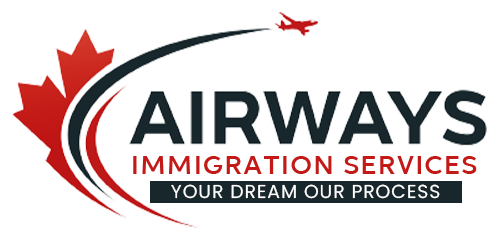
ATLANTIC IMMIGRATION PROGRAM
The Atlantic Immigration Program is designed to welcome additional newcomers to the Atlantic Canada region to fill the needs of local employers and communities.
The program allows designated local employers to identify, recruit and retain global talent. The program also has the goals of supporting population growth, developing a skilled workforce, and increasing employment rates in the region.
The AIP has proven to be a major success for immigrants, employers, and the Atlantic region. It continues to provide permanent resident status to thousands of immigrants each year, which addresses the needs of local employers, and promotes population, labour force, and economic growth.
Employer designation
Employers that would like to hire skilled immigrants under the program must apply to the province(s) in order to receive designation. Employers with locations in multiple provinces will require a separate designation for each province. Employers must meet certain requirements, including a commitment to support the newcomer and his or her family as they integrate into their new life in Atlantic Canada.
Candidate Requirements
To be eligible for the AIP you must:
The survey will test you on:
 have qualifying work experience unless you are an international student that graduated from a recognized post-secondary institution in Atlantic Canada.
have qualifying work experience unless you are an international student that graduated from a recognized post-secondary institution in Atlantic Canada. meet the educational criteria
meet the educational criteria admissibility
admissibility show you have enough settlement funds. You do not need to show proof of settlement funds if you are already living and working in Canada with a valid work permit.
show you have enough settlement funds. You do not need to show proof of settlement funds if you are already living and working in Canada with a valid work permit.
Work experience
You must have worked at least 1,560 hours in the last 5 years.
To calculate your hours:
 Count hours worked in full-time and part-time jobs
Count hours worked in full-time and part-time jobs Only count paid hours of work. Do not count volunteer or unpaid hours
Only count paid hours of work. Do not count volunteer or unpaid hours Do not count self-employed work hours
Do not count self-employed work hours You can count hours worked inside Canada or abroad. You must have been legally authorized to work in Canada as a temporary resident
You can count hours worked inside Canada or abroad. You must have been legally authorized to work in Canada as a temporary resident Count hours that were accumulated over a period of time of at least 12 months
Count hours that were accumulated over a period of time of at least 12 months You can count work experience you gained while you were studying as long as the work hours comply with the conditions of your study permit
You can count work experience you gained while you were studying as long as the work hours comply with the conditions of your study permit
The work experience needs to be under a National Occupational Classification (NOC) skill level of 0, 1, 2,3 or 4.
Your work experience must include the actions in the description of your NOC, and most of the main duties of your NOC.
International graduates
International students who graduated in Canada do not need to meet the work experience requirements if they:
 have a degree, diploma, certificate, or trade or apprenticeship certification that took at least 2 years of studies, and is from a recognized post-secondary institution in New Brunswick, Nova Scotia, Prince Edward Island, or Newfoundland and Labrador
have a degree, diploma, certificate, or trade or apprenticeship certification that took at least 2 years of studies, and is from a recognized post-secondary institution in New Brunswick, Nova Scotia, Prince Edward Island, or Newfoundland and Labrador were a full-time student during their entire studies
were a full-time student during their entire studies had the visa or permit they needed to work, study, or get training while they lived in Canada
had the visa or permit they needed to work, study, or get training while they lived in Canada lived in one of the Atlantic provinces for at least 16 months during the last 2 years before they graduated
lived in one of the Atlantic provinces for at least 16 months during the last 2 years before they graduated
Educational requirements
 If your offer is at the NOC TEER 0 or 1 skill level, you must have a one-year post-secondary educational credential or higher, or the equivalent outside of Canada
If your offer is at the NOC TEER 0 or 1 skill level, you must have a one-year post-secondary educational credential or higher, or the equivalent outside of Canada If your job offer is at the NOC TEER 2,3 or 4 skill level, you must have a Canadian high school diploma, or the equivalent outside of Canada.
If your job offer is at the NOC TEER 2,3 or 4 skill level, you must have a Canadian high school diploma, or the equivalent outside of Canada.
If you studied outside of Canada you need to get an Educational Credential Assessment (ECA) to confirm your studies are equivalent to the Canadian educational standards needed for your job offer. The ECA report must be less than 5 years old on the date IRCC receives your application.
Language requirements
 For NOC TEER 0, 1 and 2,3 job offers, you need a Canadian Language Benchmark (CLB) or Niveaux de compétence linguistique canadiens (NCLC) level of 5.
For NOC TEER 0, 1 and 2,3 job offers, you need a Canadian Language Benchmark (CLB) or Niveaux de compétence linguistique canadiens (NCLC) level of 5. For NOC TEER 4 job offers, you need a CLB or NCLC level of 4.
For NOC TEER 4 job offers, you need a CLB or NCLC level of 4.
